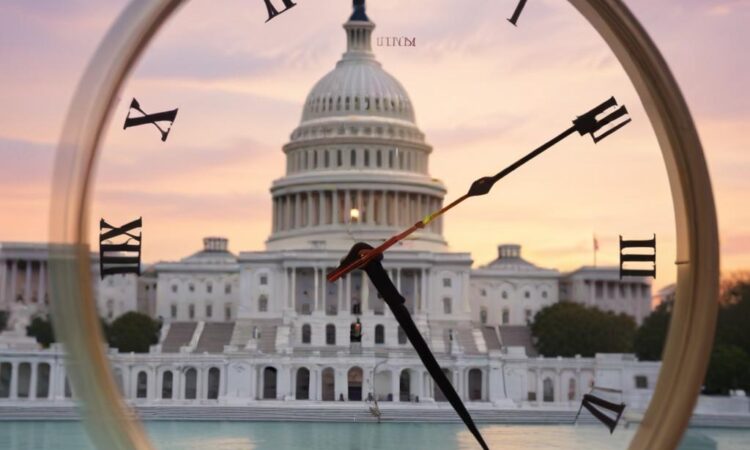US Debt Ceiling: A Looming Crisis and its Economic Implications
The United States is facing a potential default on its debt obligations as Congress grapples with raising the debt ceiling. This situation has ignited concerns about the economic consequences and sparked intense political maneuvering. The debt ceiling, a statutory limit on the amount of money the federal government can borrow, has been a recurring issue in American politics, often leading to tense standoffs and last-minute deals. However, the current situation is particularly concerning, as the deadline for raising the ceiling looms large, threatening to plunge the country into unprecedented economic turmoil.
The Stakes are High
A default on US debt would have severe repercussions, both domestically and globally. The US government would be unable to meet its financial obligations, including paying salaries to government employees, funding essential services, and paying interest on its debt. This would trigger a cascade of negative consequences, including:
- Economic Recession: A default would likely lead to a sharp decline in consumer and business confidence, resulting in a recession. Businesses may cut back on investments, consumers may delay purchases, and the stock market could plummet.
- Increased Interest Rates: Lenders would demand higher interest rates on US debt, making it more expensive for the government to borrow money and further exacerbating the economic crisis.
- Weakened Dollar: The value of the US dollar could decline, making imports more expensive and potentially fueling inflation.
- Global Financial Instability: A US default would send shockwaves through global financial markets, potentially triggering a financial crisis.
- Damage to US Reputation: A default would severely damage the US’s credibility as a reliable borrower, undermining its global leadership role.
Political Maneuvering and the Path Forward
The current impasse over raising the debt ceiling is a result of deep political divisions within Congress. Republicans, who control the House of Representatives, are using the debt ceiling as leverage to demand spending cuts. Democrats, who control the Senate and the White House, are pushing back, arguing that raising the debt ceiling is necessary to avoid a default and maintain economic stability. The political battle is further complicated by the upcoming presidential election, as both parties are vying for political advantage.
Several potential solutions are being discussed. Some propose a short-term extension of the debt ceiling to buy time for further negotiations. Others advocate for a more comprehensive deal that includes both raising the debt ceiling and addressing long-term fiscal issues. However, any solution would require significant compromise from both parties. Failure to reach an agreement could lead to a disastrous default.
The Importance of Compromise and Responsibility
The US debt ceiling is a critical issue that demands a responsible and bipartisan approach. Both parties have a shared responsibility to ensure that the government can meet its financial obligations and avoid a catastrophic economic crisis. Compromise and cooperation are essential to navigate this challenge and prevent a default that could have devastating consequences for the US economy and the global financial system.
The Road Ahead
The coming weeks will be crucial in determining the outcome of the debt ceiling standoff. Negotiations between the White House and Congress will intensify, and the public will be watching closely as the deadline approaches. It is imperative that both parties prioritize the national interest and find a solution that avoids a default. The consequences of inaction are too grave to contemplate.
The US debt ceiling crisis highlights the fragility of the global financial system and the importance of responsible fiscal management. It also underscores the need for political leaders to rise above partisanship and prioritize the well-being of the nation. Failure to act could have far-reaching consequences for generations to come.

